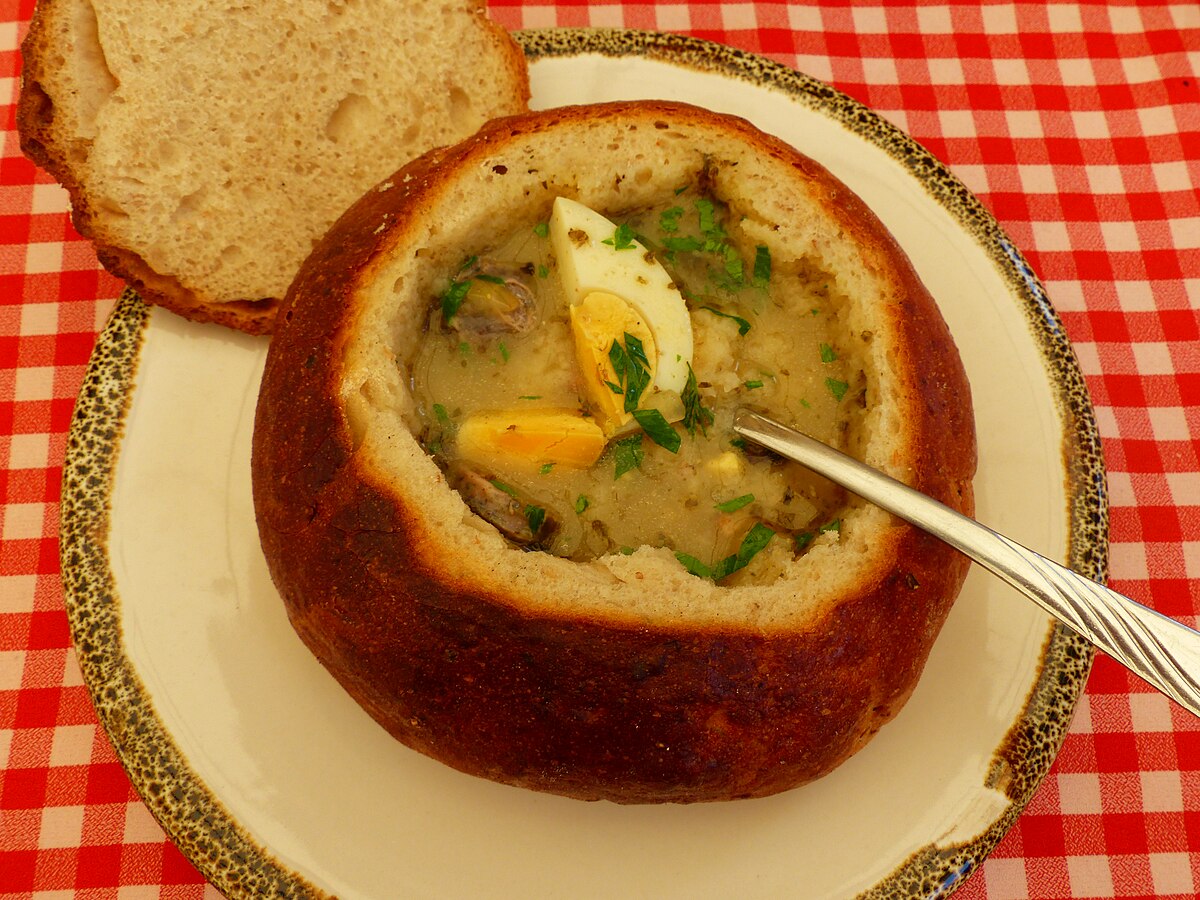Żurek, Poland’s cherished sour rye soup, boasts a history as rich and textured as its tangy flavour. Its origins reach deep into the Middle Ages, emerging as a humble yet filling dish among Polish peasants and farmers. Made initially from readily available ingredients like fermented rye flour, water, and root vegetables, its sour taste stems from the slow fermentation of rye flour, a natural process that shaped both its aroma and flavour. This rudimentary soup was nourishing and practical, crafted to sustain rural communities through long winters and scarce resources.
Over centuries, Żurek grew beyond its peasant roots, becoming a culinary staple across all social classes. It holds particular cultural significance during Lent and fasting periods when meat is not consumed. The soup’s heartiness made it satisfying during these times of abstinence. It also graced Polish tables at weddings, holidays and festive gatherings, marked by toppings that enhanced its rustic base. Popular accompaniments include smoked sausage, bacon, mushrooms and hard-boiled eggs. Regional variations abound across Poland, with some recipes incorporating broad beans, split peas, or even herring, reflecting local ingredients and culinary traditions.
Preparation methods have evolved considerably while maintaining the soup’s historic core. Traditionally, the fermented rye starter, known as zakwas, was prepared days in advance, often on the same day rye bread was baked. Modern recipes preserve this tradition but offer convenient ready-made starters for home cooks. The broth may be crafted from vegetable or meat stock, with seasonings like garlic, marjoram and horseradish underscoring its robust flavour profile. Thickened and creamy with a slightly milky tang, the soup is often served in a crusty bread bowl.
Seasonally, Żurek is most closely associated with Easter in Poland, traditionally part of the festive breakfast that breaks the Lenten fast. Its rich, warming qualities prepare the body for spring, symbolising renewal and sustenance. However, it remains a beloved dish throughout the year, enjoyed in colder months as comfort food.
In Cyprus, where a vibrant Polish community has grown recently, Żurek enjoys appreciation as a connection to homeland culture and tradition. While rye flour is less common in Cyprus, local Cypriot ingredients such as fresh eggs, mushrooms and seasonal root vegetables complement the soup’s flavour and texture well. The communal and familial aspect of Żurek resonates with Cyprus’ strong cultural emphasis on shared meals and tradition. Adapting the dish using available local produce offers a fusion that honours both Polish heritage and Cypriot culinary sensibilities.
Żurek’s enduring appeal lies in its hearty simplicity, age-old fermentation technique, and ability to bring people together over a warm, nourishing bowl – a timeless tradition that it continues to inspire both in Poland and abroad. This age-old soup is a testament to the rich, evolving story of food and community across borders.






Click here to change your cookie preferences